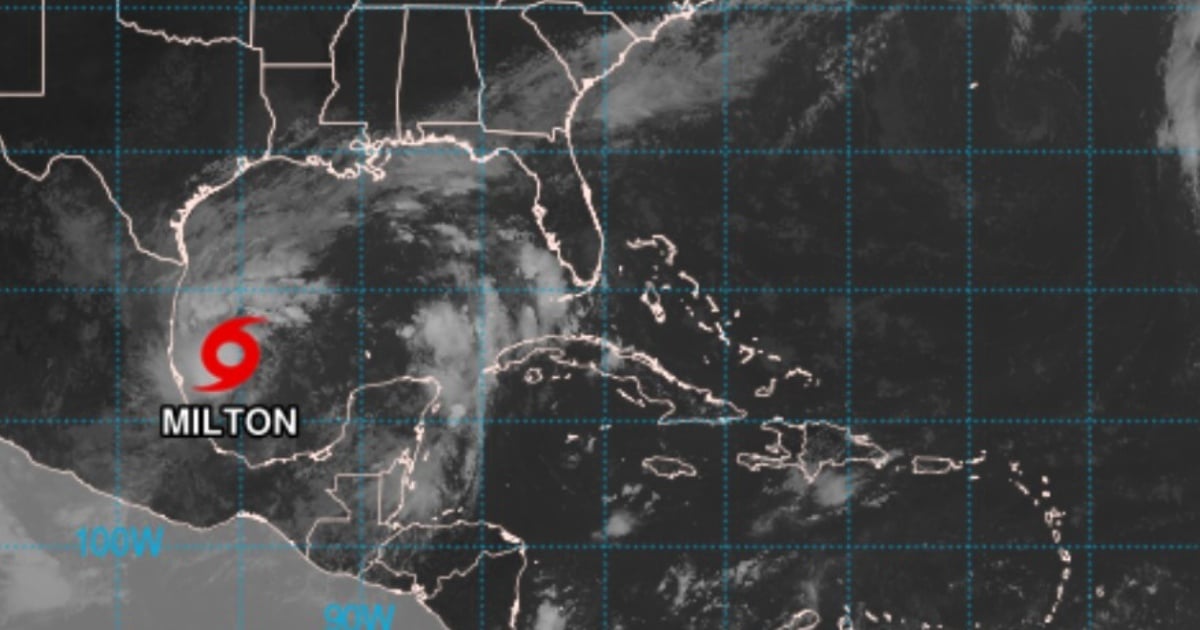
Tropical depression 14 intensified within a few hours and is now tropical storm Milton, with the possibility of soon reaching hurricane category according to the Saffir-Simpson scale and impacting the west coast of Florida, likely on Tuesday, as reported by the National Hurricane Center in Miami (NHC).
"It is expected to continue strengthening, which would pose a risk of impacts that could jeopardize lives in parts of the west coast of Florida next week," the NHC noted in its most recent update on the weather phenomenon.
The maximum sustained winds of Milton now reach 40 mph (65 km/h), with stronger gusts, and it is moving to the east-northeast.
The storm is located in the Gulf of Mexico, about 355 kilometers northeast of Veracruz and 590 kilometers northwest of Progreso, both Mexican territories.
The National Weather Service (NWS) of the United States anticipates that Milton will "rapidly intensify" as it moves to the east-northeast across the Gulf of Mexico.
It is likely to reach or come close to major hurricane status when it arrives at the west coast of Florida in the middle of next week.
In light of this situation, the NWS warns of "an increasing risk of storm surges and potentially deadly winds" for parts of the west coast of Florida starting on Tuesday or Wednesday.
Residents of the affected areas are urged to have their hurricane emergency plan ready, follow the recommendations of local authorities, and stay informed about the updates on the forecast.
Intense rains are expected in Florida this Sunday and Monday, with a risk of flash flooding.
The news is a harsh blow for the Sunshine State, which is still recovering from the devastation caused by Hurricane Helene, which last week left at least 215 dead in the United States and hundreds missing after reaching Category 4.
Helene made landfall in northwest Florida on September 26. The severe weather phenomenon caused the destruction of roads, bridges, and towns, in addition to leaving more than 700,000 homes without electricity, mainly in North Carolina, where the death toll exceeded one hundred.
Helene was the deadliest hurricane in the United States since Katrina in 2005, which claimed more than 1,800 lives.
What do you think?
COMMENTFiled under: